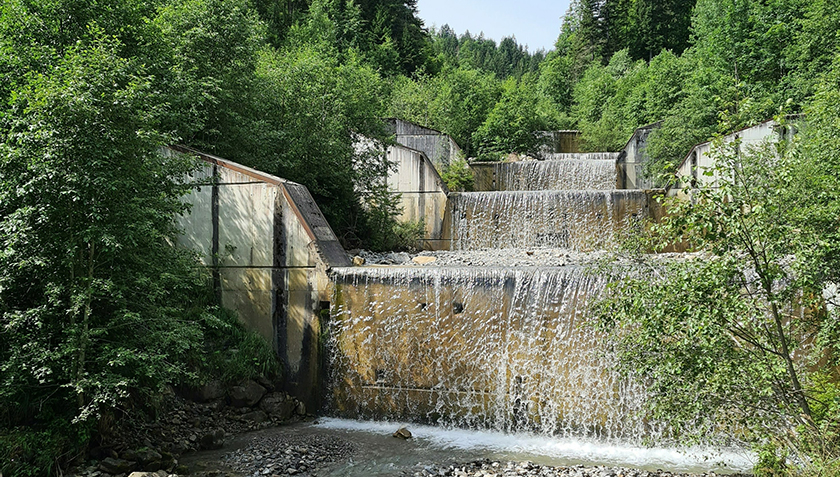Department Environmental Social Sciences
TREBRIDGE – Transformation toward resilient ecosystems: Bridging natural and social sciences

With courtesy of Ariel do Prado
Overview
The research project TREBRIDGE focuses on watershed management in Alpine mountain areas in Switzerland. For erosion and flood control, check dams have been constructed in streams and clear-cuts have been replanted with monocultures for centuries. The maintenance of flood management infrastructure requires high financial investments and at the same time affects the quality and resilience of the affected ecosystems. The aim of TREBRIDGE is to identify policy and management approaches of watersheds and forests in alpine regions. These approaches should on the one hand increase the resilience of mountain ecosystems in coping with extreme weather events and on the other hand meet societal needs regarding natural resource use and protection. The research project follows an interdisciplinary approach by taking a holistic view on watershed and forest functioning, assembling inter- and transdisciplinary scholars, geologists, geomorphologists, hydrologists, ecologists, economists and policy analysts.
The project is divided into five working packages:
1. Science Integration
Integrate science across the disciplines involved in this project, securing a truly holistic approach throughout the project and a synthesis of results into joint outputs for the advancement of science;
2. Participatory Scenario Process
Through a participatory scenario development and assessment process, create alternative policy and management options for delivering resilient ecosystems and meeting societal and ecological needs in Alpine regions;
3. Sediment production and transfer
Assess the effects of current management practices on sediment delivery and runoff, and contrast this with less engineered alternatives;
4. Exploring the hydrological and ecological consequences
Explore how changes in vegetation cover influence the sediment cascade and channel stability, and quantify the relative importance of climate change vs. forest management practices on sediment transfer;
5. Values of nature and environmental policy
Analyse the economic and non-economic values of nature-based solutions on societal preferences, then develop policy and management options and assess the distribution of burdens and benefits.
The Eawag research group is responsible for the work packages 1 and 5, i.e. “Science Integration” and “Values of nature and environmental policy”.
Work Package 1 (Science Integration) pursues three main goals:
1. Integrating across different disciplines involved in the project to ensure a collaborative and integrative approach throughout the project, by jointly developing suitable boundary concepts, methods and tools that allow team members to engage in crossing disciplinary boundaries.
2. Generating practice-oriented synthesis products tailored to the specific knowledge needs of intended audiences, linking and relating systems-, target-, and transformation knowledge provided by different work packages.
3. Ensuring regular reflection among team members on inter- and transdisciplinarity in both theory and practice, analyzing challenges and opportunities of integration experienced within the project at cognitive, social and emotional level.
Information
Funding: Swiss National Science Foundation (SNSF) as part of the program Sinergia – interdisciplinary, collaborative and breakthrough
Duration: 2022 to 2026
The project is led by the ETH Zürich NARP research group.





